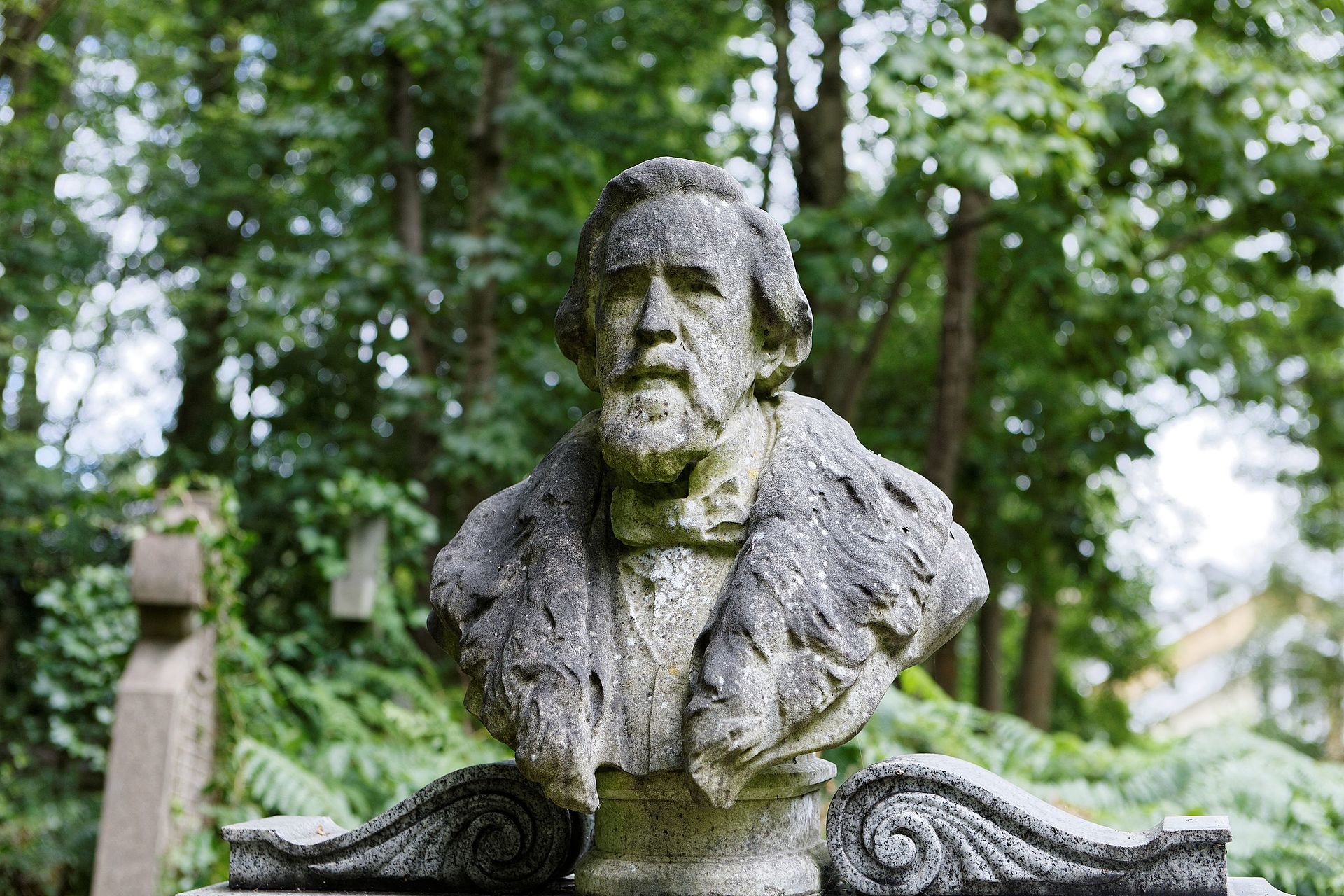
This year is Humanists UK’s 125th anniversary: a celebration of the rich history of humanism and the movement that gave rise to Humanists UK. This history includes the traditions of Owenism and its ‘rational religion’, of positivism and its celebration of the achievements of humanity, and of secularism – a term coined by George Jacob Holyoake to encompass ‘a certain positive and ethical element, which the terms ‘Infidel’, ‘Sceptic’, ‘Atheist’ do not express’. This vision of secularism – distinct from its usage now meaning church-state separation – shares much in common with that of humanism as we know it today.
George Jacob Holyoake (1817–1906)
George Holyoake is a towering figure in humanist history, from advancing secularist ideals, to conducting non-religious ceremonies. Beginning his career in the freethinking Owenite tradition, Holyoake became a leading proponent of the co-operative movement, and a prominent figure (along with his brother, Austin) in the secularist press. His 1842 arrest for blasphemy led to his being labelled ‘Secularism’s last martyr’, and he was also, as Harriet Law wrote in The Secular Chronicle, ‘her chiefest pride’. It was following a talk on the principles of Owenism that Holyoake uttered the words which would result in his six month prison sentence for blasphemy: the suggestion that the deity should be put on half pay. His conviction helped to cement Holyoake’s atheism, and increase his devotion to freedom of the press. With Emma Martin, he went on to found the Anti-Persecution Union, defending others who fell foul of archaic blasphemy laws.

The inventor of secularism
A new book by Ray Argyle entitled Inventing Secularism: The Radical Life of George Jacob Holyoake, is the first modern biography of Holyoake, and re-evaluates his role in pioneering the secularist approach, setting his legacy in the context of threats to secularism today. Argyle writes:
‘Holyoake changed the life experience of millions around the world by founding secularism on the idea that the duties of a life lived on earth should rank above preparation for an imagined life after death.’
Holyoake defined ‘secularism’ as:
…that which seeks the development of the physical, moral, and intellectual nature of man to the highest possible point, as the immediate duty of life — which inculcates the practical sufficiency of natural morality apart from Atheism, Theism or the Bible — which selects as its methods of procedure the promotion of human improvement by material means, and proposes these positive agreements as the common bond of union, to all who would regulate life by reason and ennoble it by service.
A humanist legacy
Given the focus of the ethical societies on ‘the development of good character and the promotion of right conduct on a purely human basis’, Holyoake’s support for the early humanist movement is perhaps no surprise. In fact, he lent active help to the creation of the Brighton and Hove Ethical Society, in the city where he ended his days. His daughter, Emilie Ashurst Holyoake, followed in his footsteps, becoming an eloquent voice for trade unionism (particularly for women), as well as being a decades-long member of the Union of Ethical Societies (now Humanists UK). On Holyoake’s death in 1906, she presented her father’s papers to the Bishopsgate Institute, where they can be consulted today alongside those of the British Humanist Association. Among them is the 1842 arrest warrant which secured his fate, and helped to cement his convictions.
Today, Holyoake is remembered on Kensal Green Cemetery’s Reformers’ Memorial (alongside many other radical freethinkers), and gave his name to Manchester’s Holyoake House, home to the Co-operative Archives. Holyoake, and his daughter Emilie, are just two of the hundreds of pioneering humanists featured on the upcoming Humanist Heritage website.
Notes:
For more information about the Humanist Heritage Project or this article, please contact Madeleine Goodall on madeleine@humanists.uk.Humanists UK is the national charity working on behalf of non-religious people. Powered by over 100,000 members and supporters, we advance free thinking and promote humanism to create a tolerant society where rational thinking and kindness prevail. We provide ceremonies, pastoral care, education, and support services benefitting over a million people every year and our campaigns advance humanist thinking on ethical issues, human rights, and equal treatment for all.
In 2021, Humanists UK will turn 125 years old. It will be celebrating its anniversary with a renewed focus on its history, including a new Humanist Heritage website that tells the untold story of humanism in the UK – the stories of people, groups, objects, places, movements, publications, and ideas.
See also:
- Countdown to 125th Humanists UK anniversary
- Heroines of freethought: women of the early humanist movement
- Wikithon for Banned Books Week expands humanist history on Wikipedia
- Humanist heritage: Unearthing the rich history of humanism in the UK (Interview with Madeleine Goodall)
- Director of Understanding Humanism discusses Humanist Heritage Project with Heritage Creative (interview with Luke Donnellan)

